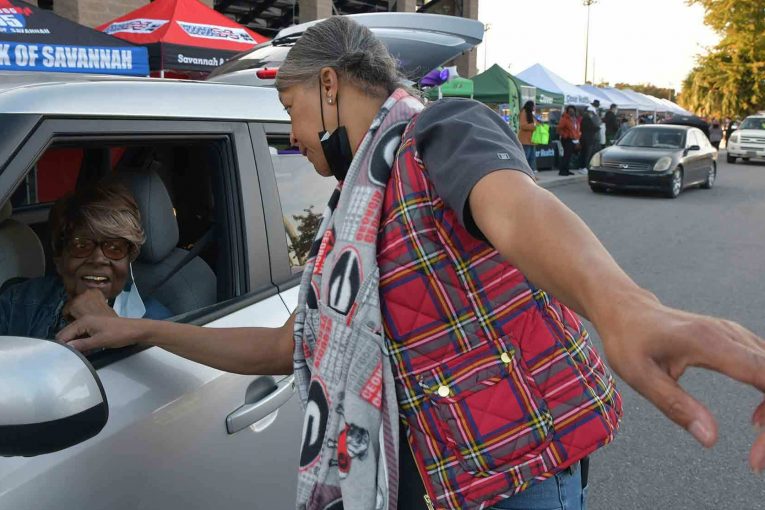

by Akhi Johnson, Erica Bryant and Nicholas MacDonald
Motion for Justice Partners Chatham County District Attorney Shalena Cook Jones and local nonprofit Savannah Feed the Hungry have created an innovative program for young people who are facing gun possession charges. Instead of traumatic prison sentences, the Show Us Your Guns! Differentiated Disposition Program offers teenagers and young adults a chance to complete programs designed to develop their potential.
In a society that far too often equates public safety with incarceration, this is an important step. Research has shown that diverting young people away from prison can reduce the likelihood they will be arrested for crimes in the future. Prosecutors like Jones are helping communities by pioneering alternatives to incarceration that can help, rather than harm.
Show Us Your Guns! directs eligible young adults ages 16 through 25 who face gun possession charges into programs run by Savannah Feed the Hungry. This nonprofit launched in 2009 with the simple mission of meeting people’s basic need for food. It has since expanded to provide several programs that help people thrive—including training, educational support, housing, health education, and conflict resolution skills. Through Show Us Your Guns!, the Savannah Feed the Hungry Empowerment Center will customize programming designed to meet the specific needs of each participant.

Many young people facing gun charges need opportunities to grow. Unlike one-size-fits-all prison sentences, programs aimed at such growth help shape young people who will be positive influences in their communities. Studies have found that prosecution and incarceration for some offenses can increase the likelihood of future crimes. High rates of imprisonment break down the social and family bonds that guide people away from crime. They also remove adults who would otherwise nurture children and deprive communities of income.
The lasting legacy of the “tough-on-crime” era means that, in many jurisdictions, people charged with gun possession will face harsh penalties, long sentences, and little chance for rehabilitation. Yet, we know that in many instances gun possession is related to fear of physical safety, not criminal motivations. Programs like Show Us Your Guns! remove firearms from the streets without “throwing away” the teenager or young adult. Incarceration takes a person away from their community and sets them up for future failure; in contrast, diverting people pre-charge to a community-based program aims to set them up for success.
“We are building more and more prisons, but the money we use to incarcerate people should be used to empower them,” said Georgia State Representative Carl Gilliard, founder of Savannah Feed the Hungry. “We need to give people a chance. We want to break the cycle of incarceration and give a new beginning.”
The United States incarcerates people at a greater rate than any other country in the world—along racist lines—and this does not make us safe. Motion for Justice is a Vera initiative committed to addressing racial inequity in local criminal legal systems, and young people charged with gun possession are disproportionately BIPOC. As partners in Motion for Justice, Savannah Feed the Hungry and Jones are working to improve safety outcomes in their community by creating policies that tackle racial injustices deeply rooted in the criminal legal system and challenge the narrative that incarceration is the path to public safety. We need more prosecutors to pioneer programs that divert people out of jails and prisons and into programs that prevent crime by addressing its root causes. More prosecutors should use their power to help develop the potential in young people and help make communities truly safe.
Akhi Johnson is Director, Reshaping Prosecution. Erica Bryant is Associate Director of Writing. Nicholas MacDonald is Communications Manager, Reshaping Prosecution. Originally published by Vera Institute of Justice.

https://em-ui.constantcontact.com/em-ui/em/page/em-ui/email#





I believe ‘we’ are now reversing the trend with more slated to be shut down than built, no?
But on the second front, how are these mutually exclusive? We can’t get rid of the incentive not to commit crimes, or criminals will commit crimes, AND we should work as a society to improve conditions that lead to persons becoming criminals.